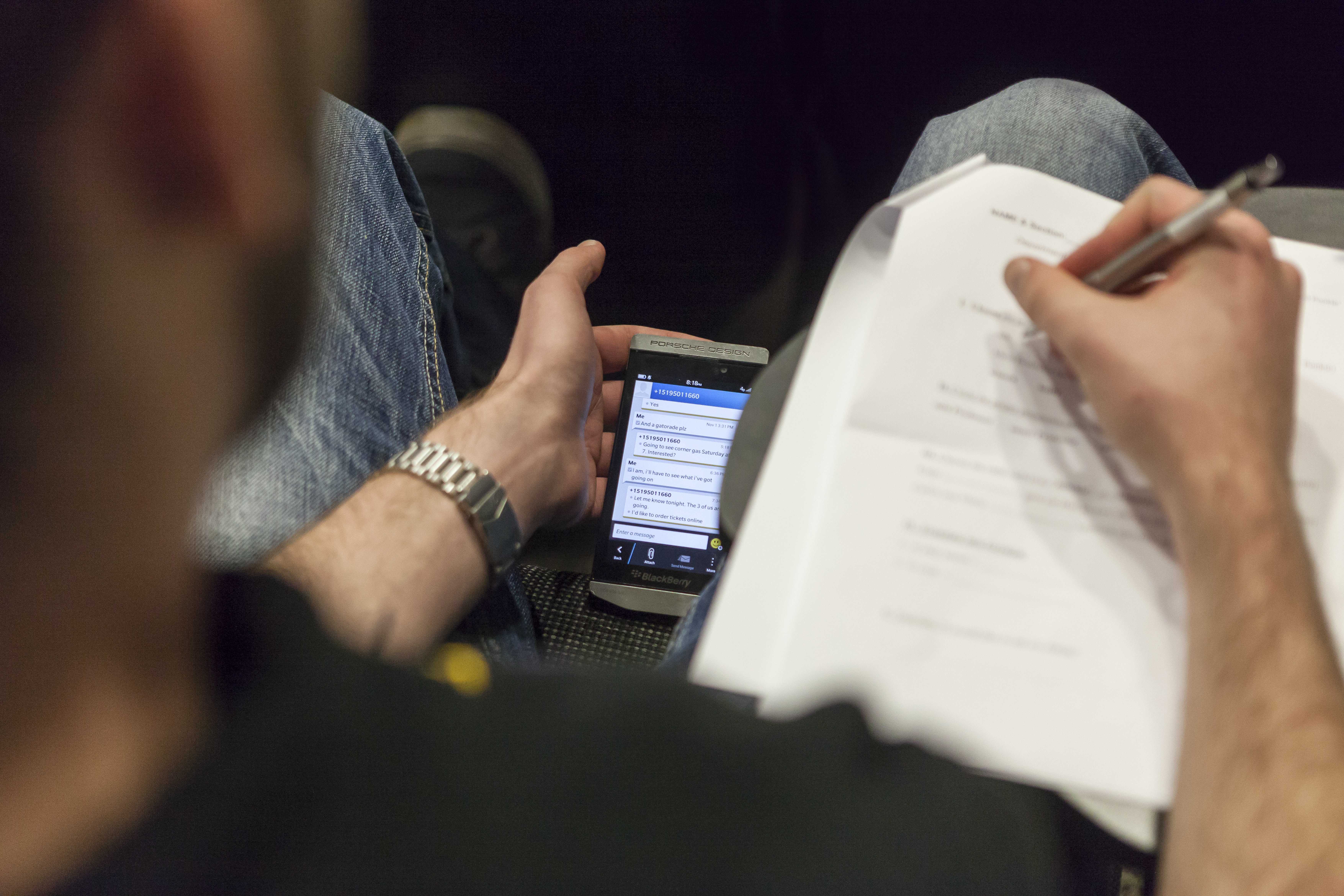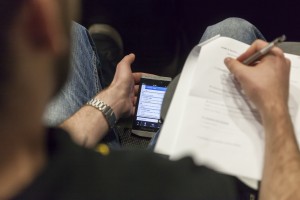The changing face of cheating

With the rise in technology in students’ lives, cheating has become harder to catch and control

Academic integrity has been an issue that has long frustrated professors and school officials. With the rapid production of new technology, students have come up with new methods of cheating on assignments, tests and exams.
Information can now be accessed more easily, quickly and discreetly than ever before.
For professors at Wilfrid Laurier University, technology is also changing the way they monitor cheating and plagiarism.
“In the past, to copy off an assignment you had to have the physical assignment,” said Sofy Carayannopoulos, the BU111 course coordinator. “Now it’s easy to share that assignment, and store it, and share it again and again and again.”
The advent of wearable technology is a big concern. Google Glass, recently put on the market, is one such example. It is, essentially, a pair of glasses with the capabilities of a computer. Smart watches will also enable students to access information very easily.
“We haven’t seen any on the [Brantford] campus yet,” said Judy Eaton, the academic integrity advisor at Laurier’s Brantford campus. “But once that becomes popular — if it ever becomes popular — that could be an issue for us.”
Although students are using technology to find new ways to cheat, professors are also using technology to maintain academic integrity.
“In the same way that it’s easier for students to cheat, it’s easier for me to catch them,” said Carayannopoulos.
However, because of the fast rate at which technology advances, there will always be a lag between the time a new way of cheating becomes popular and the time professors can stop that method.
“I’m sure many of my academic colleagues won’t agree with me, but I don’t think that faculty members can beat students in the use of technology,” said Lea Caragata, the academic integrity advisor at Laurier’s Waterloo campus. “Technology is of [the students’] generation.”
Instead of strictly policing students, Laurier has opted to educate them. The purpose of the academic integrity advisors is to promote knowledge about the negative effects of cheating.
“When [students] act without integrity, they’re diminishing their degree and everyone else’s degree if people come to think of Laurier as a place where you can cheat,” said Eaton.
“So they’re hurting not only themselves, but other people.”
Caragata echoed Eaton’s opinion.
“I think the way out of this isn’t to try to kind of develop a game plan and stay a step ahead of students, but rather work with students so that they understand that we’re all in this together, that Laurier’s reputation is their reputation,” she said. “If Laurier begins to have a reputation as a university where grades and degrees don’t matter because everybody knows that integrity lapses are rampant … that affects us all.”
At Laurier’s Brantford campus, all students take four core courses, which focus heavily on academic integrity. They learn what it is and how to avoid cheating.
One component of these courses is a test on which students must score at least 70 per cent. If they do not pass, they must either retake the test or participate in an academic integrity workshop.
“We try to bring them back to the ‘you don’t want to cheat,’ not the ‘here’s how we’re going to catch you,’” Eaton explained.
Because the Waterloo campus is larger, students do not take core courses. However, professors often stress the importance of academic integrity within their own classes.
For example, all first-year business students are required to complete an assignment that teaches them how to source properly.
Additionally, a student-led conference on academic integrity is expected to be held in the spring.
“I can talk until the cows come home about academic integrity and why it’s important, but I think the real power of a message will come when the students themselves are talking to each other about integrity and why it’s important,” Caragata said.


